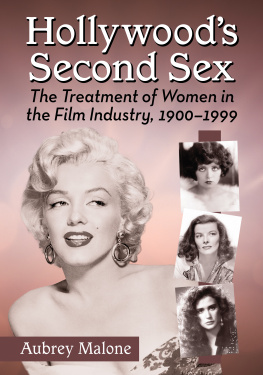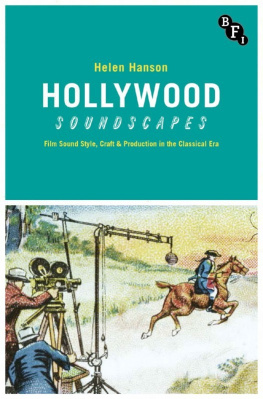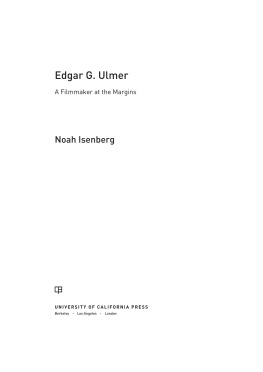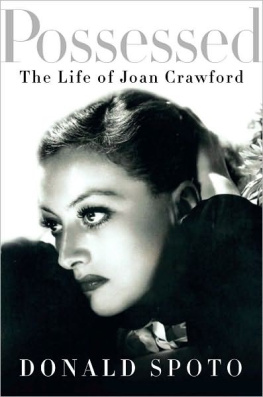Contents
Guide
THE WORLD AND ITS DOUBLE
The Life and Work of Otto Preminger
CHRIS FUJIWARA
Farrar, Straus and Giroux
New York
The author and publisher have provided this e-book to you for your personal use only. You may not make this e-book publicly available in any way. Copyright infringement is against the law. If you believe the copy of this e-book you are reading infringes on the authors copyright, please notify the publisher at: http://us.macmillanusa.com/piracy.
For my mother
If youre interested in me, too bad for you.
Otto Preminger
These days, one reads mostly of two Otto Premingers. The first exists in history books as an important figure in the struggles against film censorship and the anti-Communist blacklist. The second exists for film buffs, as a great director of film noir.
Rarely does one read of a Preminger who interests me more, and who was once even celebrated: a master of mise-en-scne and a symbol of cinematic fascination. In Preminger, fascinationthe movement toward and into somethingis in constant tension with its opposite: withdrawal from something, neutrality, detachment. A simultaneous push-pull generates the fantastic energy of his films, their subtle, spiraling rhythms, their veiled and discreet pathos, their intellectual weight and urgency. The present book was born out of a deepening involvement with this dual movement and a desire to trace its workings.
Preminger was a famous theater director in Vienna before he established himself as a film director in the United States, and his films show a theatrical orientation: a bias toward fluid staging and the long take (If it were possible, I would do the whole of the film in one shot, he once said), toward a mise-en-scne in which multiple characters are in view at the same time, toward dialogue and the text. Just as strong as the drive toward a unified stream of time in Premingers films is the pull of the reality of actual locations, with their nonnegotiable demands on placing and maneuvering actors, the camera, and sound equipment. So strong is this pull that the location might be said to represent for Premingers cinema an overcoming of the theater.
As a historical figure, Preminger might now be called the victim of a certain irony. The director who best represents the essential of classical cinema (a term I shall reconsider here and there in this book), he also predicted and was responsible for creating much of the landscape of current cinemaa cinema that is, however, in many ways a betrayal of the kind of adult entertainment he wanted to bring to the screen. Perhaps Preminger anticipated this betrayal, too, and surpassed it in his late films, through a course far more radical and more destructive than was taken by merely commercial directors.
The succession of disparate projects in Premingers careerso daunting to anyone who tries to see the work as a wholemakes apparent a will to reinvent himself, to avoid being defined as the director of a single film or a single kind of film, to not be limited by what he had done before. This will is visible not only in his work as an independent producer-director from 1953 to 1979, though of course it is plainer there, but also in his work as a contract producer-director at Twentieth Century-Fox in the 1940s. I have only one principle, Preminger said, which is that there are no principles, and only one rule, which is that there are no rules. I am a man who lives from day to day, and who loves living, and thats all. I dont want someone to put me in a little box and tell me, you are like this or like that. You wont succeed. I want to reserve the right to change completely between nine in the morning and six at night, and to be a different man each day of the week.
A crucial aspect of Premingers deeply personal impersonality is control. He presents himself as someone who dominates his materials, his story, and his actors and who invites the audience to share his elation over this mastery, to identify with him in surveying the world of the film and floating above it, in modifying perspectives, moving in closer or backing away. The great freedom of movement in Premingers films is communicated also to his characters: again and again, his work provides rueful, cynical, tragic, and triumphant testimony to the freedom of humanity.
An important part of Premingers image was the character of the dictatorial, bullying, Teutonic director who terrified and humiliated actors. This was indeed a role, one that Premingerwho was also known to the public for playing Nazis in filmsput on deliberately, partly to limn a memorable and entertaining public image, and partly to secure the conditions he felt necessary for making his films. I can be patient and nice, Preminger once remarked, but when Im like that it takes me so much longer to get what I want.
Many who concede his brilliance as a producer and even his skill with the camera have claimed that Preminger was not a good director of actors. No doubt both the evidence on the screen and the testimony of his coworkers plainly show that Preminger was not an actors director in the ways that George Cukor, Jean Renoir, Elia Kazan, or John Cassavetes were (to cite four very different examples of directors for whom a collaborative and improvisatory practice was not only a working principle but an aesthetic tenet). Yet Premingers films abound in excellent performances. He preferred a natural and direct kind of acting that was simply the projection of the actors own nature through the filter of the character. He once told an actor who was having trouble in a scene, Its so simple. Just visualize yourself in the situation, and say the line. When it works, it works. No film is better acted than The Moon Is Blue or Anatomy of a Murder.
Although many actors believed that Preminger was the kind of director who had the whole film planned in his head before he started shooting, evidence reveals that this was true only in a broad sense and that decisions of where to place the camera and when to cut were mademuch of the timeduring the rehearsal of the scene, and not before. Obviously, there are exceptions: the close-ups of Akiva and Barak facing each other across prison bars in Exodus could have been, and were, anticipated at the writing stage. In general, as Preminger said, I never prepare any shots I visualize things: I know how Im going to do it. But when I rehearse with actors I often change my idea because I like the film to come out of a rehearsal, out of a live contact, rather than to design it in advance and have it set. This is a question of system I try to use the camera to make the point of the scene; that is about the only principle I can tell you, so it always works out differently.
Preminger once told an interviewer that he had trained himself as much as possible to forget, when directing, that he was also the producer. He was a perfectionistbut a relative perfectionist, not a pure perfectionist. He was capable of calling for twenty takes of a scene if he thought the performances could be improved, but he was satisfied with what some would regard as technical flaws: the shadow of the camera equipment is so omnipresent in his independent productions as to be almost a directorial signature, whether the cameraman was Sam Leavitt or Leon Shamroy. On the other hand, Preminger insisted that the screenplay be spoken as written, and he was not one to tolerate actors taking minor liberties with dialogue: this was one area where he thought perfection was easily enough achievable that nothing short of it was to be countenanced.











